

Articles
Why Does My Duvet Smell
Modified: October 20, 2024
Discover why your duvet smells and how to get rid of the odor with our informative articles. Improve your sleep environment today!
(Many of the links in this article redirect to a specific reviewed product. Your purchase of these products through affiliate links helps to generate commission for Storables.com, at no extra cost. Learn more)
Introduction
A duvet is designed to provide comfort and warmth while you sleep, but what happens when it starts to emit an unpleasant odor? The smell coming from your duvet can be off-putting and can interfere with your ability to get a good night’s sleep. So, why does your duvet smell? There are several reasons why this may be happening, and in this article, we will explore the causes of duvet smell as well as ways to prevent and remove it.
Duvet smell can be caused by a variety of factors, ranging from inadequate cleaning to the presence of sweat and body oils. Additionally, pets and their dander, dust mites and allergens, as well as mold and mildew growth, can contribute to a less-than-pleasant odor emanating from your duvet.
To address the issue of duvet smell, it is important to identify the root causes and take appropriate steps to prevent and eliminate it. Regular cleaning, proper storage, and the use of duvet covers are some of the measures that can help maintain a fresh-smelling duvet.
In the following sections, we will delve into the specific causes of duvet smell and outline effective strategies to tackle and prevent this problem. By understanding and implementing these solutions, you can ensure that your duvet remains clean, fresh, and free from any unwanted odors.
Key Takeaways:
- Regular cleaning, duvet covers, and proper storage are essential to prevent and eliminate duvet smell caused by sweat, pet dander, dust mites, and mold growth, ensuring a fresh and hygienic bedding experience.
- Utilize spot cleaning, odor neutralizers, sunlight, and fresh air to effectively remove duvet smell, rejuvenating your bedding and creating a clean and inviting sleeping environment.
Read more: Why Does My Blender Smell
Causes of Duvet Smell
There are several factors that can contribute to a duvet emitting an unpleasant odor. Understanding these causes can help you address the issue and take the necessary steps to prevent or eliminate the smell. Let’s take a closer look at the main culprits:
- Inadequate Cleaning: One of the primary reasons a duvet may develop a smell is insufficient cleaning. Over time, dust, sweat, body oils, and other substances can accumulate on the duvet, leading to an unpleasant odor.
- Perspiration and Body Oils: When we sleep, our bodies naturally release sweat and oils. If these bodily fluids seep into your duvet and aren’t regularly washed out, they can create an unpleasant scent.
- Pet Dander and Odors: If you have pets that sleep on or near your duvet, their dander and body odors can transfer onto the fabric, causing a lingering smell.
- Dust Mites and Allergens: Duvets can be a breeding ground for microscopic dust mites and allergens. These tiny creatures and particles can generate an unpleasant odor, especially if the duvet is not regularly cleaned.
- Mold and Mildew Growth: If a duvet is exposed to moisture or stored in a damp environment, it can become susceptible to mold and mildew growth. These fungi can cause a musty smell that is difficult to eliminate.
Now that we understand the various causes of duvet smell, let’s explore some effective strategies to prevent and remove the unpleasant odors from your duvet.
Inadequate Cleaning
One of the primary causes of duvet smell is inadequate cleaning. Regular cleaning is essential to prevent the buildup of dirt, sweat, body oils, and other substances that can contribute to an unpleasant odor. Here are a few reasons why inadequate cleaning can lead to a smelly duvet:
- Infrequent Washing: If you only wash your duvet infrequently or ignore the manufacturer’s recommended washing instructions, dirt and odors can accumulate over time. This can result in a musty or stale smell.
- Improper Cleaning Techniques: Using the wrong cleaning products or methods can also contribute to duvet smell. Harsh chemicals or improper drying techniques can leave behind residue or lock in odors.
- Insufficient Drying: Dampness is a breeding ground for mold and mildew, which can cause a foul odor. If your duvet is not thoroughly dried after washing, it may develop a musty smell.
To prevent duvet smell due to inadequate cleaning, follow these tips:
- Follow Care Instructions: Always check the care label on your duvet for specific washing instructions. Some duvets may require dry cleaning, while others can be machine washed.
- Wash Regularly: Aim to wash your duvet at least once or twice a year. However, if you spill something on it or notice a strong odor, it’s best to wash it promptly.
- Use Mild Detergents: Opt for gentle, eco-friendly detergents that are suitable for sensitive skin. Avoid using bleach or strong chemicals that can damage the fabric and leave behind a lingering smell.
- Dry Thoroughly: After washing, ensure that your duvet is completely dry before using or storing it. Hang it outside on a sunny day or use a tumble dryer on a low heat setting.
By following these cleaning practices, you can effectively eliminate duvet smell caused by inadequate cleaning and ensure a fresh-smelling and hygienic bedding experience.
Perspiration and Body Oils
When we sleep, our bodies naturally release sweat and oils, which can seep into our duvets and contribute to unpleasant odors over time. If not properly addressed, the accumulation of perspiration and body oils can lead to a persistent smell. Here’s why perspiration and body oils can cause duvet smell:
- Absorption into the Fabric: Duvet fabric, especially if it lacks proper protection, can absorb sweat and body oils. These substances can penetrate deep into the fibers, resulting in an unpleasant odor.
- Bacterial Growth: The combination of sweat and body oils creates a favorable environment for bacterial growth. Bacteria breaking down these substances can produce unpleasant odors.
- Transfer from the User: Our bodies come into direct contact with the duvet while we sleep. Therefore, any sweat or body oils on our skin can easily transfer onto the duvet, eventually leading to a lingering smell.
To prevent duvet smell caused by perspiration and body oils, consider the following tips:
- Use a Duvet Cover: Investing in a high-quality duvet cover provides an extra layer of protection against sweat and body oils. The cover acts as a barrier, preventing these substances from directly contacting the duvet fabric.
- Wash Duvet Covers Regularly: Ensure that you wash your duvet covers regularly, following the care instructions provided. This will help remove any sweat or body oil residue and maintain a fresh-smelling duvet.
- Shower Before Bed: Taking a shower or bath before bedtime can help reduce the amount of sweat and body oils our bodies produce while we sleep. This can indirectly minimize the transfer of these substances onto the duvet.
- Use Breathable Bedding: Opt for duvet materials that are breathable, such as cotton or bamboo. These materials allow for better air circulation, reducing the likelihood of perspiration and body oils becoming trapped in the fabric.
By implementing these preventative measures, you can minimize the impact of perspiration and body oils on your duvet’s smell and maintain a fresh and clean sleeping environment.
Pet Dander and Odors
If you have pets that sleep on or near your duvet, their dander and body odors can easily transfer onto the fabric, leading to a persistent smell. Pet dander, which consists of tiny flecks of dead skin, can also contribute to allergies and worsen the overall odor situation. Here’s why pet dander and odors can cause duvet smell:
- Dander Transfer: When your pet sheds dander, it can easily float through the air and settle on your duvet. Over time, the accumulation of pet dander can create an unpleasant odor.
- Body Odors: Just like humans, pets have their own unique scent. This scent can transfer to the duvet fabric, particularly if your pet frequently sleeps on or near it.
- Dirt and Outdoor Smells: If your pet spends time outdoors, they can bring in dirt, grass, and other outdoor odors. These smells can transfer onto the duvet, adding to the overall odor of the bedding.
To prevent duvet smell caused by pet dander and odors, consider the following tips:
- Establish Pet-Free Zones: Designate specific areas in your home where pets are not allowed, such as bedrooms. This will reduce the amount of pet dander and odors that come into contact with your duvet.
- Regularly Groom Your Pet: Brushing and bathing your pet regularly can help minimize shedding and control body odors. By maintaining good grooming practices, you can decrease the amount of dander and odor that makes its way onto your duvet.
- Use Pet Beds and Blankets: Provide your pet with their own designated bedding, such as a pet bed or blanket. This will encourage them to sleep in their own space and reduce the transfer of dander and odors to your duvet.
- Wash Pet Bedding Frequently: Just like your duvet, your pet’s bedding should be regularly cleaned to prevent the buildup of odors and dander. Follow the manufacturer’s instructions for washing and drying.
By implementing these measures, you can minimize the impact of pet dander and odors on your duvet’s smell and create a fresher sleeping environment.
Read more: Why Does My Blanket Smell?
Dust Mites and Allergens
Dust mites are microscopic creatures that feed on dead skin cells and thrive in warm and humid environments. These tiny pests, along with other allergens, can accumulate in your duvet and cause an unpleasant odor. Here’s how dust mites and allergens can contribute to duvet smell:
- Dust Mite Waste: Dust mites produce waste, which contains proteins known to cause allergies. The accumulation of dust mite waste in your duvet can lead to an unpleasant odor and exacerbate allergy symptoms.
- Allergen Buildup: Besides dust mites, your duvet can also accumulate other allergens such as pollen, pet dander, and mold spores. These allergens produce odorous particles, contributing to the overall smell of your duvet.
- Moisture and Humidity: Dust mites thrive in environments with high humidity levels. If your duvet is not adequately ventilated or stored in a damp area, it can create the perfect breeding ground for dust mites and mold growth, leading to a musty smell.
To prevent duvet smell caused by dust mites and allergens, consider the following tips:
- Wash in Hot Water: Washing your duvet in hot water (above 130°F or 54°C) can help eliminate dust mites and allergens. High temperatures effectively kill these microscopic pests and remove their waste.
- Use Anti-Allergen Bedding Covers: Investing in anti-allergen covers for your duvet can provide an additional barrier against dust mites and allergens. These covers are made of tightly woven fabric that prevents the passage of allergen particles.
- Regularly Vacuum and Dust: Vacuuming your bedroom and dusting surfaces can help minimize the buildup of dust mites and allergens. Pay close attention to areas around the bed and ensure that your vacuum has a HEPA filter to trap microscopic particles.
- Keep Humidity Under Control: Use a dehumidifier or air conditioner to maintain a humidity level below 50%. This will create an environment less favorable for dust mites and mold growth in your duvet.
By implementing these preventative measures, you can reduce the presence of dust mites and allergens in your duvet, alleviate odors, and create a healthier sleeping environment.
Mold and Mildew Growth
Mold and mildew are fungi that can grow in damp and poorly ventilated environments, making your duvet susceptible to their growth. Besides being unsightly, mold and mildew can emit a musty odor that is difficult to eliminate. Here’s how mold and mildew growth can contribute to duvet smell:
- Dampness: If your duvet is not adequately dried or stored in a damp environment, it can create the perfect conditions for mold and mildew to thrive. This moisture can come from factors such as high humidity, spills on the duvet, or improper washing and drying techniques.
- Stagnant Air: Poor air circulation can also contribute to mold and mildew growth. If your duvet is not properly ventilated or stored in an airtight space, it can trap moisture and encourage fungal growth.
- Health Risks: In addition to the unpleasant smell, mold and mildew can pose health risks, especially for individuals with respiratory conditions or allergies. Exposure to mold spores can trigger allergic reactions and worsen symptoms.
To prevent duvet smell caused by mold and mildew growth, consider the following tips:
- Ensure Proper Drying: After washing your duvet, ensure that it is thoroughly dried before storing or using it. Hang it outside in direct sunlight or use a dryer on a low heat setting.
- Avoid Damp Storage: Store your duvet in a cool, dry place where air can circulate freely. Avoid storing it in plastic bags or containers, as they can trap moisture and contribute to mold and mildew growth.
- Inspect for Mold: Regularly inspect your duvet for any signs of mold or mildew. If you notice any discoloration, patches, or a musty smell, take immediate action to address the issue.
- Treat with Vinegar: If you suspect mold or mildew on your duvet, you can try treating it with vinegar. Mix equal parts of white vinegar and water in a spray bottle and lightly mist the affected areas. Then, allow the duvet to air dry in a well-ventilated area.
- Consult a Professional: If mold growth is extensive or persistent, it is advisable to consult a professional cleaning service or consider replacing the duvet to eliminate the smell and ensure a hygienic sleeping environment.
By implementing these preventive measures and promptly addressing any mold or mildew growth, you can minimize the risk of duvet smell caused by fungal infestation and maintain a fresh and clean bedding experience.
Preventing Duvet Smell
Prevention is key when it comes to addressing duvet smell. By incorporating good habits and implementing preventive measures, you can maintain a fresh-smelling duvet and enjoy a comfortable sleeping environment. Here are some effective strategies for preventing duvet smell:
- Regular Washing and Drying: Establish a regular cleaning routine for your duvet. Follow the manufacturer’s instructions for washing and drying, and aim to clean your duvet at least once or twice a year. Promptly address any spills or stains to prevent odors from setting in.
- Using Duvet Covers: Invest in a high-quality duvet cover to protect your duvet from spills, sweat, body oils, and other substances that can contribute to odors. Duvet covers can be easily removed and washed, making it easier to maintain a clean and fresh-smelling duvet.
- Vacuuming and Air Out: Regularly vacuum your duvet to remove dust, dirt, and allergens. Additionally, air out your duvet periodically by hanging it outside on a sunny day. Sunlight and fresh air can help eliminate any lingering odors.
- Proper Storage: When storing your duvet, choose a cool, dry location with good ventilation. Avoid storing it in plastic bags or containers, as they can trap moisture and contribute to mold and mildew growth. Instead, use a breathable storage bag or cloth cover to protect the duvet.
By following these preventive measures, you can significantly reduce the risk of duvet smell and ensure that your bedding remains fresh and pleasant to sleep in.
Regular Washing and Drying
One of the most important steps in preventing duvet smell is to establish a regular washing and drying routine. Regular cleaning helps remove dirt, sweat, body oils, and other substances that can accumulate and lead to an unpleasant odor. Here are some key points to consider:
- Follow Manufacturer’s Instructions: Before washing your duvet, check the care label for specific cleaning instructions. Different duvets may have different requirements, such as whether they can be machine washed or if they need to be dry cleaned.
- Frequency of Washing: Aim to wash your duvet at least once or twice a year to keep it clean and fresh. However, certain circumstances may warrant more frequent washing, such as spills or stains on the duvet.
- Use Mild Detergents: When washing your duvet, opt for mild detergents that are suitable for delicate fabrics. Harsh chemicals can strip the fabric of its natural oils and leave behind a persistent smell.
- Proper Load Size: Ensure that you have enough space in your washing machine to accommodate the duvet comfortably. Overcrowding the machine can prevent effective cleaning and drying.
- Thorough Drying: After washing, it is crucial to thoroughly dry your duvet before putting it back on your bed or storing it. Dampness can lead to the growth of mold and mildew, resulting in a musty smell. Hang the duvet outside on a sunny day or use a dryer on a low heat setting to ensure complete drying.
Regular cleaning and proper drying not only help prevent duvet smell but also contribute to maintaining a hygienic sleeping environment. By following these steps, you can enjoy a fresh and clean duvet throughout the year.
To keep your duvet smelling fresh, regularly air it out in the sun, wash it according to the care instructions, and use a duvet cover to protect it from sweat and body oils.
Read more: Why Does My Dresser Smell
Using Duvet Covers
Using a duvet cover is a simple yet effective way to protect your duvet from spills, sweat, body oils, and other substances that can cause odors. Duvet covers act as a barrier, keeping your duvet clean and fresh. Here’s why using duvet covers is important in preventing duvet smell:
- Protection against Spills and Stains: Accidents happen, and spills or stains on your duvet can quickly lead to unpleasant odors. A duvet cover acts as a protective layer, preventing liquids from seeping into the duvet filling and eliminating the risk of persistent smells.
- Easy to Remove and Wash: Duvet covers are designed to be easily removable and machine washable. This makes cleaning a breeze since you can simply take off the cover and launder it separately, reducing the chance of odors developing.
- Added Comfort and Style: Duvet covers come in a variety of colors, patterns, and materials, allowing you to enhance the visual appeal of your bedding while adding an extra layer of comfort. They also provide versatility, allowing you to change the look and feel of your bedding without replacing the entire duvet.
- Protection against Allergens: If you have allergies or sensitivities, a duvet cover can further protect you from dust mites, allergens, and pet dander that can accumulate on your duvet. This can help reduce allergic reactions and minimize any associated odors.
When using duvet covers to prevent duvet smell, consider the following tips:
- Choose High-Quality Covers: Invest in duvet covers made from durable and breathable materials, such as cotton or linen. These fabrics allow for airflow and moisture wicking, reducing the risk of odor-causing bacteria and mold growth.
- Wash Duvet Covers Regularly: To maintain a fresh and clean duvet, it is important to wash your duvet covers regularly, following the care instructions provided. This helps remove any sweat, body oils, or other substances that may contribute to odors.
- Proper Fit: Ensure that the duvet cover fits your duvet properly to prevent shifting and bunching, which can create pockets where odor-causing substances can accumulate. This also helps maintain the overall appearance and comfort of your bedding.
By using duvet covers, you can protect your duvet, enhance its longevity, and prevent the development of unpleasant odors. Embrace the versatility and practicality of duvet covers to keep your bedding fresh and inviting.
Vacuuming and Air Out
Vacuuming your duvet and allowing it to air out are essential steps in preventing duvet smell. Regularly removing dust, dirt, and allergens from your duvet not only keeps it clean but also reduces the chance of odors developing. Here’s why vacuuming and airing out your duvet are important:
- Remove Dust and Allergens: Dust, allergens, and other particles can accumulate on your duvet over time, leading to a stale or musty smell. Vacuuming helps eliminate these substances and keeps your duvet fresh and clean.
- Prevent Dust Mite Infestation: Dust mites are common household pests that can trigger allergies and contribute to duvet smell. Regular vacuuming disrupts their habitat, preventing their population growth and reducing the risk of odor-causing allergens.
- Allow Air Circulation: Airing out your duvet allows fresh air to circulate and helps remove any trapped moisture, preventing the growth of mold and mildew. It also helps eliminate any lingering odors and revitalizes the fabric.
Follow these tips to effectively vacuum and air out your duvet:
- Choose the Right Vacuum: Use a vacuum cleaner with a upholstery attachment or a handheld vacuum that is suitable for fabric surfaces. Ensure that the suction power is appropriate for effectively removing dust and allergens without damaging the duvet.
- Vacuum Both Sides: Turn your duvet over and vacuum both sides to thoroughly remove any debris or particles. Pay extra attention to the seams and corners, where dust and allergens tend to accumulate.
- Spot Cleaning: If you notice any stains or spills on your duvet, address them immediately by spot cleaning with a mild detergent and a clean cloth. This prevents the stains from setting in and causing odors.
- Air Out in Sunshine: Whenever possible, hang your duvet outside in direct sunlight for a few hours. The natural ultraviolet light helps kill bacteria and freshens the fabric. Be sure to check the care instructions, as some duvets may require avoiding direct sunlight exposure.
- Regular Maintenance: Make vacuuming and airing out your duvet a part of your regular cleaning routine. Aim to do this at least once every few months or more frequently if you notice any odors or allergen buildup.
By incorporating regular vacuuming and airing out into your duvet care routine, you can keep it fresh, clean, and free from unwanted odors.
Proper Storage
Proper storage of your duvet is crucial in preventing duvet smell and maintaining its freshness. When stored incorrectly, duvets can become susceptible to moisture, mold, and unpleasant odors. Here’s why proper storage is important:
- Prevent Moisture and Mold: Moisture is the enemy when it comes to maintaining a fresh-smelling duvet. Storing your duvet in a cool, dry place is essential for preventing mold and mildew growth, which can lead to persistent musty odors.
- Promote Air Circulation: Proper storage allows for adequate air circulation around the duvet, which helps prevent the accumulation of stale air and the growth of odor-causing bacteria. This helps keep your duvet smelling fresh between uses.
- Protect from Dust and Pests: A well-stored duvet is less likely to accumulate dust, dirt, or become a haven for pests like dust mites. By properly storing the duvet, you minimize the risk of these factors contributing to unpleasant odors.
Follow these guidelines to ensure proper storage of your duvet:
- Clean before Storage: Before storing your duvet, make sure it is clean and properly dried. Washing your duvet and removing any dirt, sweat, or stains helps prevent the development of odors during storage.
- Choose the Right Storage Location: Select a cool, dry, and well-ventilated area for storing your duvet. Avoid damp basements or areas prone to moisture. A linen closet or under-bed storage with good air circulation is ideal.
- Use Breathable Storage Bags: Instead of storing your duvet in plastic bags, opt for breathable storage bags or fabric covers that allow air to circulate. This prevents moisture buildup and discourages the growth of mold or mildew.
- Avoid Compression: Do not tightly compress your duvet during storage, as this can lead to fibers being crushed and the development of unpleasant odors. Allow the duvet to maintain its natural loft and fluffiness.
- Regularly Air Out: To prevent any trapped moisture or stale air, periodically remove your duvet from storage and air it out in a well-ventilated area. This helps refresh the fabric and prevent any potential odors from setting in.
By following these storage practices, you can keep your duvet fresh, clean, and free from unwanted odors during periods of non-use.
Removing Duvet Smell
If you find that your duvet has developed an unpleasant odor, it’s important to take steps to eliminate it. Removing duvet smell can be achieved through targeted cleaning methods and natural odor neutralizers. Here are some effective strategies for getting rid of duvet smell:
- Spot Cleaning: If the odor is localized to a specific area or caused by a recent spill, spot cleaning may be effective. Use a mild detergent or stain remover specifically designed for the fabric of your duvet. Gently blot the affected area and allow it to air dry completely.
- Odor Neutralizers: Certain substances are known for their ability to absorb and neutralize odors. Baking soda is a popular and effective odor neutralizer. Sprinkle baking soda over the surface of your duvet, allow it to sit for a few hours or overnight, and then vacuum it off thoroughly.
- Sunlight and Fresh Air: Exposure to sunlight and fresh air can help eliminate odors naturally. Hang your duvet outside on a sunny day, ensuring that it is adequately supported and protected from direct sunlight. The combination of UV rays and fresh air helps neutralize odors and freshen the fabric.
- Professional Cleaning: In some cases, professional cleaning may be necessary, especially if the odor persists or is caused by deep-seated issues such as mold or mildew. Professional cleaners have the expertise and proper equipment to treat and thoroughly clean your duvet, effectively removing the smell.
- Reconsidering Fill Material: If your duvet continues to emit an unpleasant smell that cannot be eliminated, it may be worth considering replacing it with a duvet filled with alternative materials. Some natural fill materials, such as down or wool, are less prone to retaining odors and may be a better option for individuals sensitive to smells.
If you’re unsure of the cause or the appropriate method for removing the odor from your duvet, it’s best to consult with a professional cleaner or contact the manufacturer for guidance. They can provide expert advice tailored to your specific duvet and assist in effectively eliminating the smell.
By taking the appropriate measures to remove duvet smell, you can restore the freshness of your bedding and enjoy a comfortable night’s sleep.
Read more: Why Does My Oil Diffuser Not Smell
Spot Cleaning
If you notice a localized area of your duvet that has developed an unpleasant smell, spot cleaning can be an effective method to target and eliminate the odor. Spot cleaning involves treating the specific area of concern rather than washing the entire duvet. Here’s how to spot clean your duvet:
- Identify the Source: Determine the specific area of your duvet that is causing the odor. This could be a stain or spill that has resulted in a lingering smell.
- Select the Right Cleaner: Choose a mild detergent or stain remover that is suitable for the fabric of your duvet. Read the instructions and ensure that it is safe to use on your specific type of fabric.
- Prep the Area: Before applying any cleaning solution, gently blot or remove any excess liquid or debris from the stained area. This helps prevent further spreading and allows the cleaner to penetrate effectively.
- Test on a Small Area: Before applying the cleaner to the entire stain, test it on a small, inconspicuous area of the duvet to ensure that it does not cause any adverse effects or discoloration.
- Apply the Cleaner: Following the instructions on the cleaner, apply a small amount directly to the stained area. Use a clean cloth or sponge to gently work the cleaner into the fabric, taking care not to rub too vigorously.
- Blot, Don’t Rub: After applying the cleaner, blot the stained area with a clean, absorbent cloth to lift and remove the dirt or stain. Avoid rubbing, as this can push the stain further into the fabric and potentially damage it.
- Rinse or Dry Clean: Depending on the type of cleaner used and the fabric of your duvet, you may need to rinse the area with clean water or follow the manufacturer’s instructions for dry cleaning. Ensure that the stained area is well-rinsed and free from any residual cleaning solution.
- Air Dry Completely: Allow the spot-cleaned area to air dry completely before using or storing the duvet. Ensure that it is thoroughly dry to prevent the formation of mold or mildew, which can cause odors.
Spot cleaning is an effective way to address localized odors on your duvet, especially when caused by recent spills or stains. However, if the smell persists or affects a larger portion of the duvet, it may be necessary to consider cleaning the entire duvet or seeking professional assistance.
Always follow the manufacturer’s instructions and recommendations for spot cleaning your duvet to avoid any damage or discoloration. When in doubt, consult a professional cleaner or contact the duvet manufacturer for further guidance.
Odor Neutralizers
When dealing with duvet smell, using odor neutralizers can be a highly effective method to eliminate unpleasant odors and freshen up your bedding. Odor neutralizers work by absorbing and neutralizing the molecules that cause the odor, rather than simply masking the smell. Here are some common odor neutralizers you can use:
- Baking Soda: Baking soda is a natural and versatile odor neutralizer. It has the ability to absorb odors and neutralize them. Simply sprinkle a generous amount of baking soda over the surface of your duvet, allowing it to sit for several hours or overnight. Then, vacuum the baking soda off thoroughly to remove any absorbed odors.
- Activated Charcoal: Activated charcoal is another powerful odor neutralizer. It works by adsorbing and trapping odor-causing molecules. Place some activated charcoal in an open container or fabric bag and position it near your duvet. Leave it for a few days to allow it to absorb the odors. Remember to keep it away from direct contact with the duvet to prevent any stains.
- Essential Oils: Some essential oils, like lavender, lemon, or tea tree oil, have natural deodorizing properties. Add a few drops of your preferred essential oil to a small bowl of water. Then, lightly mist the mixture over your duvet, allowing it to air dry. The pleasant fragrance of the essential oil will help neutralize any lingering smells.
- Vinegar: Vinegar is a natural cleaning agent that can also act as an odor neutralizer. Mix equal parts of white vinegar and water in a spray bottle. Lightly mist the solution over your duvet, focusing on areas with odors. Allow it to air dry completely. The vinegar scent will dissipate as it dries, leaving your duvet smelling fresh.
When using odor neutralizers, keep the following tips in mind:
- Test in a Small Area: Before applying any neutralizer to your entire duvet, test it in a small, inconspicuous area to ensure it does not cause any damage or discoloration.
- Avoid Overuse: Use odor neutralizers in moderation, following the recommended quantities. Using excessive amounts may leave residues or alter the texture of your duvet.
- Follow Safety Guidelines: Ensure proper ventilation when using odor neutralizers. Some individuals may be sensitive to certain scents, so it’s important to be mindful of any allergies or reactions.
Odor neutralizers are an effective and natural way to eliminate duvet smells. Experiment with different options to find the method that works best for you and leaves your duvet smelling fresh and inviting.
Sunlight and Fresh Air
Sunlight and fresh air are natural remedies that can help eliminate odors and freshen up your duvet. Exposing your duvet to sunlight and encouraging airflow can have several benefits in removing unwanted smells. Here’s how sunlight and fresh air can help:
- UV Ray Exposure: Sunlight contains ultraviolet (UV) rays, which have natural sanitizing properties. These rays can help kill bacteria and eliminate odor-causing germs that may be present on your duvet.
- Natural Deodorizer: Sunlight acts as a natural deodorizer by breaking down odor molecules. It helps to neutralize unpleasant smells, leaving your duvet smelling fresher and cleaner.
- Fresh Air Circulation: Allowing fresh air to circulate around your duvet helps remove any stale or trapped odors. It helps to replace the indoor air with the fresh outdoor air, effectively freshering the duvet.
Follow these tips to effectively utilize sunlight and fresh air to remove duvet smell:
- Choose a Sunny Day: Select a clear day with ample sunlight to air out your duvet. The sunlight should be strong enough to provide the desired benefits.
- Find a Suitable Spot: Look for an area outside where you can hang your duvet, such as a clothesline or balcony. Ensure that it is in a location where it receives direct sunlight for the majority of the day.
- Protect from Direct Sunlight: While sunlight is beneficial, prolonged exposure to intense sunlight can cause some fabrics to fade or become damaged. If your duvet is sensitive to sunlight, cover it with a light-colored sheet or place it in a semi-shaded area to shield it from direct sunlight while still allowing air circulation.
- Evenly Hang the Duvet: Hang the duvet evenly to allow maximum airflow. Ensure that it is fully extended without any folds or wrinkles that could trap moisture or hinder the airing process.
- Rotate and Flip: Periodically rotate and flip your duvet to expose all sides to the sunlight and fresh air. This ensures that each part receives equal treatment and allows for more comprehensive odor elimination.
- Leave Out for Several Hours: Leave your duvet outside for several hours, ideally for a full day, to allow sufficient time for sunlight and fresh air to work their magic.
- Check Weather Conditions: Avoid exposing your duvet to direct sunlight on extremely hot or humid days, as excessive heat or dampness may have adverse effects. It’s essential to take weather conditions into consideration before planning your duvet airing.
By taking advantage of sunlight and fresh air, you can naturally and effectively eliminate odors from your duvet, rejuvenating it and giving it a fresh and clean scent.
Conclusion
Maintaining a fresh-smelling duvet is crucial for a comfortable and inviting sleeping environment. Understanding the causes of duvet smell and implementing preventive measures are key to ensuring that your bedding remains clean and odor-free. By following the strategies outlined in this article, such as regular washing and drying, using duvet covers, vacuuming, and airing out your duvet, you can effectively prevent and minimize unwanted odors.
Inadequate cleaning, perspiration and body oils, pet dander and odors, dust mites and allergens, as well as mold and mildew growth, are common culprits behind duvet smell. However, with proper care and attention to hygiene, you can address these issues and maintain a fresh duvet.
Spot cleaning and using odor neutralizers enable you to target specific areas of concern and eliminate localized odors effectively. Sunlight and fresh air further aid in removing unpleasant smells by breaking down odors and promoting air circulation.
Remember to properly store your duvet in a cool, dry place with good ventilation to prevent moisture buildup and the growth of mold or mildew. Additionally, considering the fill material of your duvet can help minimize odors, especially for individuals sensitive to smells.
In conclusion, by implementing good cleaning practices, using duvet covers, vacuuming, and utilizing natural methods like sunlight and fresh air, you can prevent and remove duvet smell. These steps will not only keep your duvet fresh and pleasant but also contribute to a clean and hygienic sleeping environment. So, take care of your duvet, and enjoy a rejuvenating sleep night after night in the fresh embrace of a clean and odor-free duvet.
Frequently Asked Questions about Why Does My Duvet Smell
Was this page helpful?
At Storables.com, we guarantee accurate and reliable information. Our content, validated by Expert Board Contributors, is crafted following stringent Editorial Policies. We're committed to providing you with well-researched, expert-backed insights for all your informational needs.

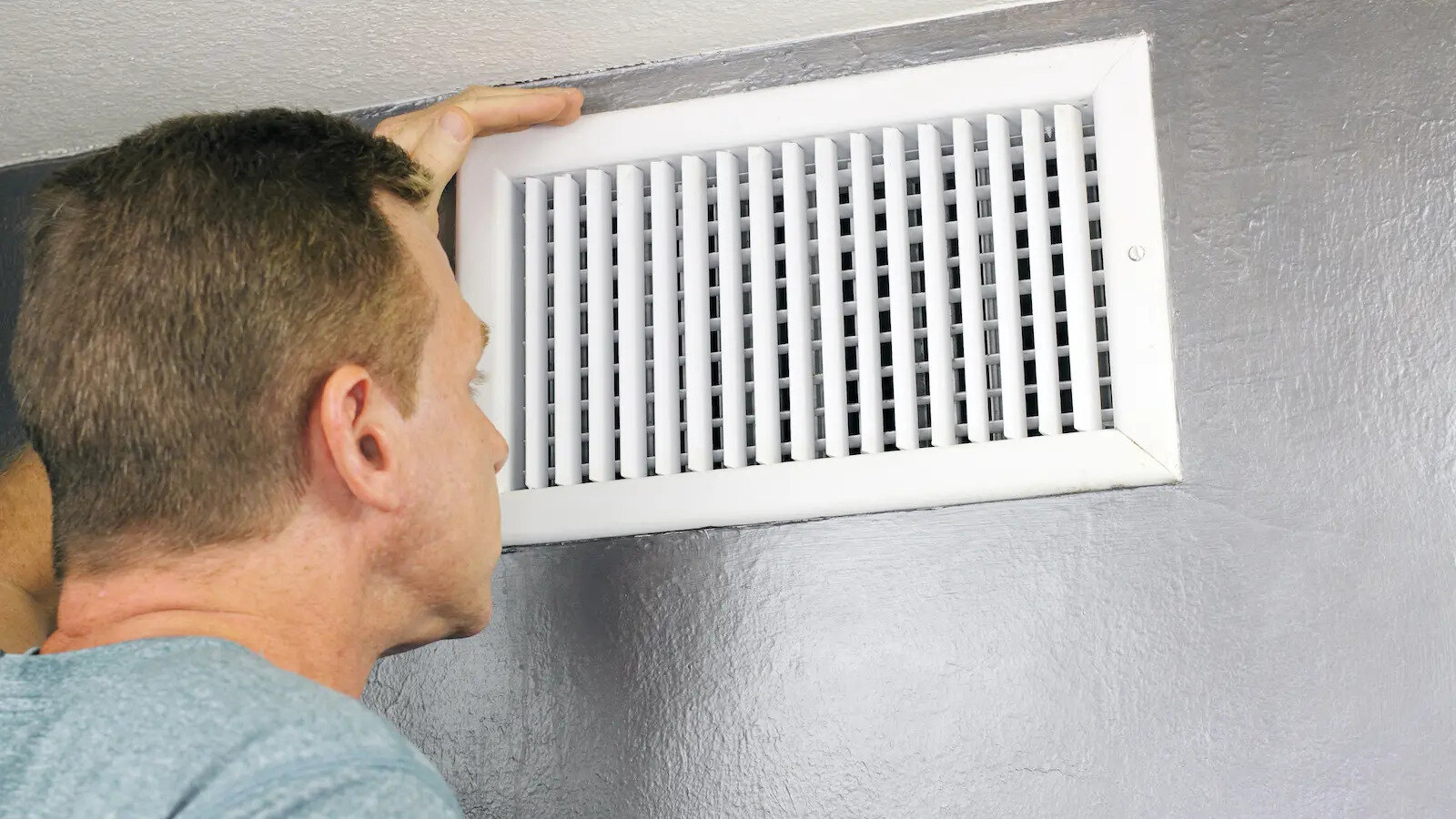
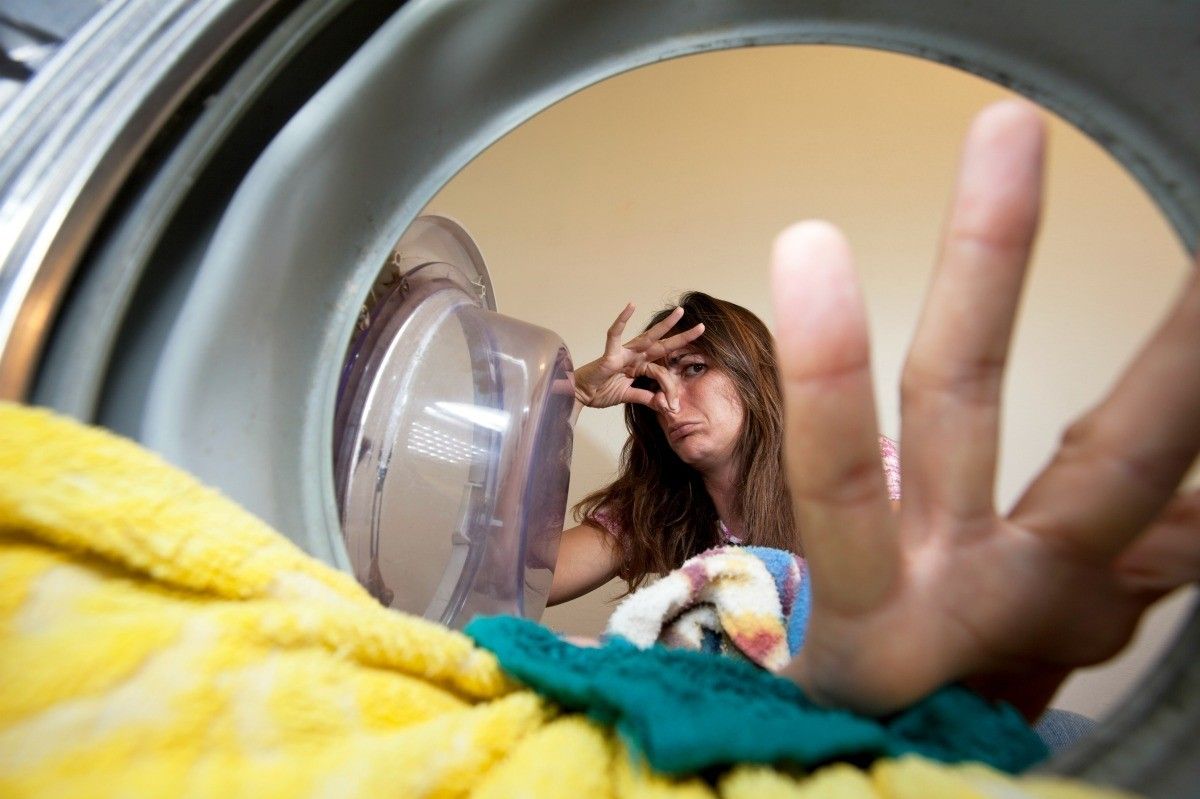




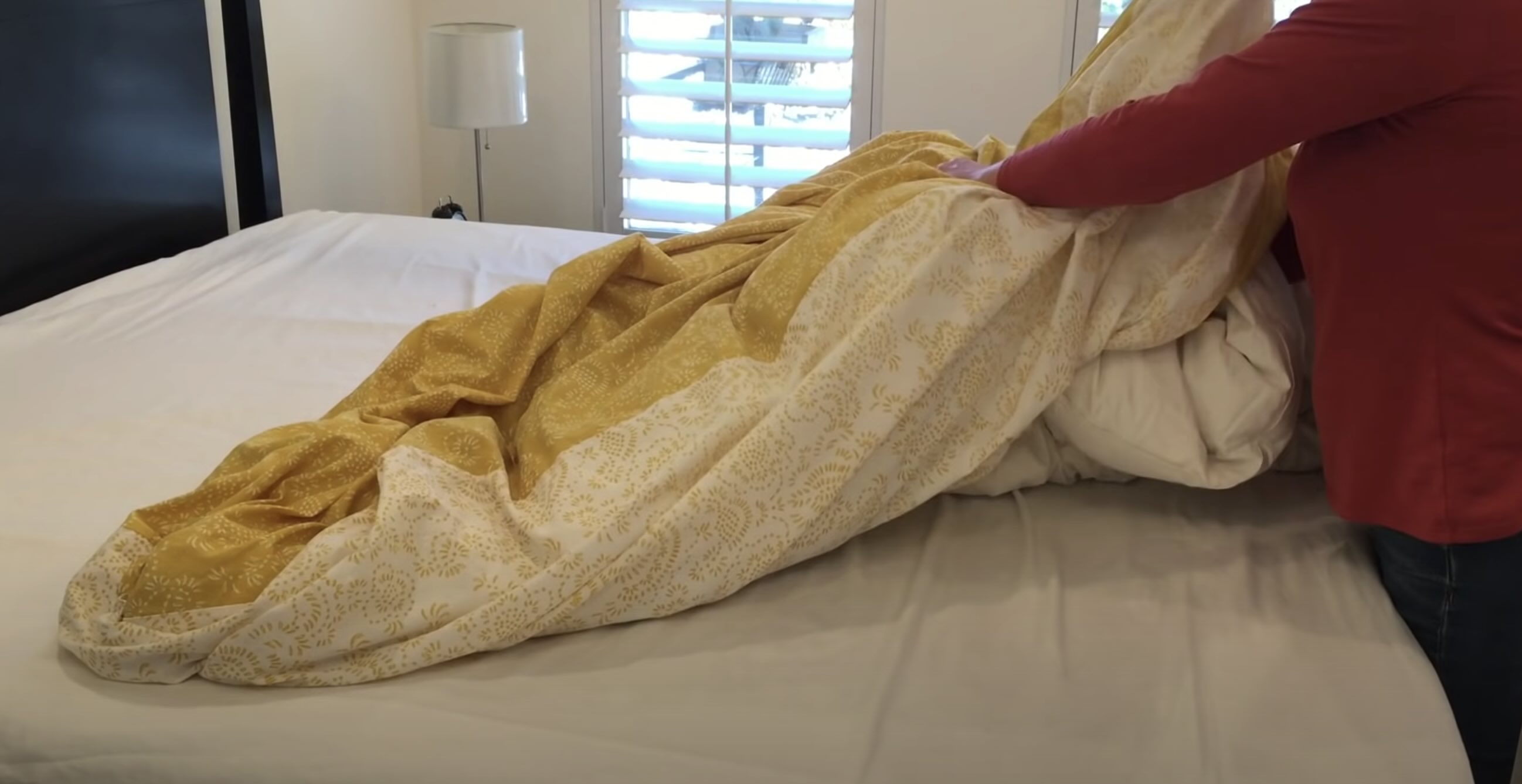
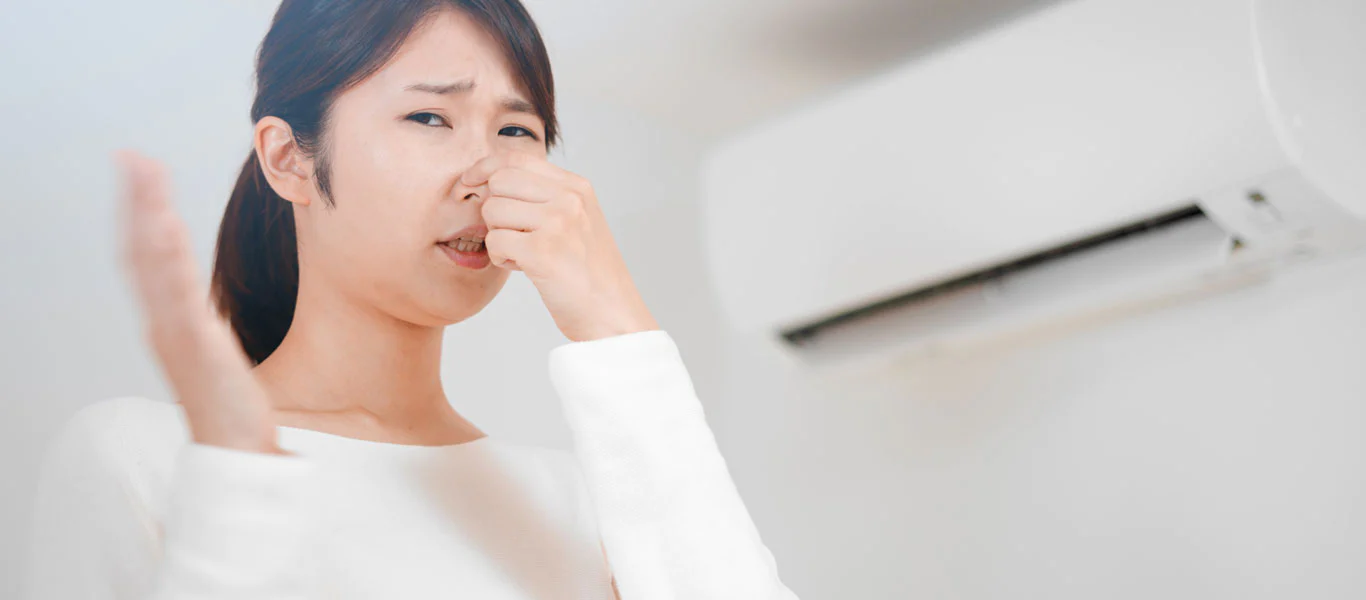
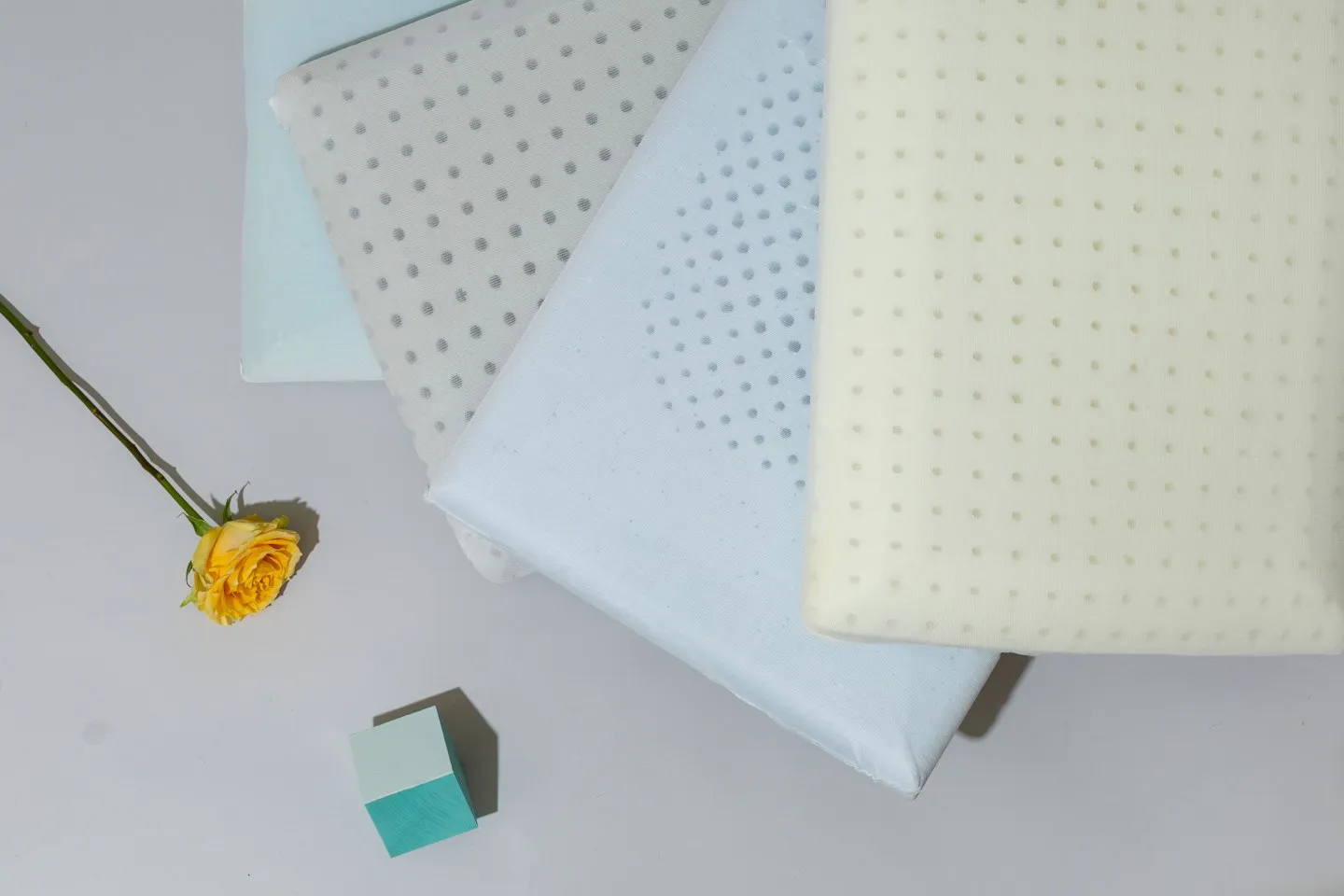

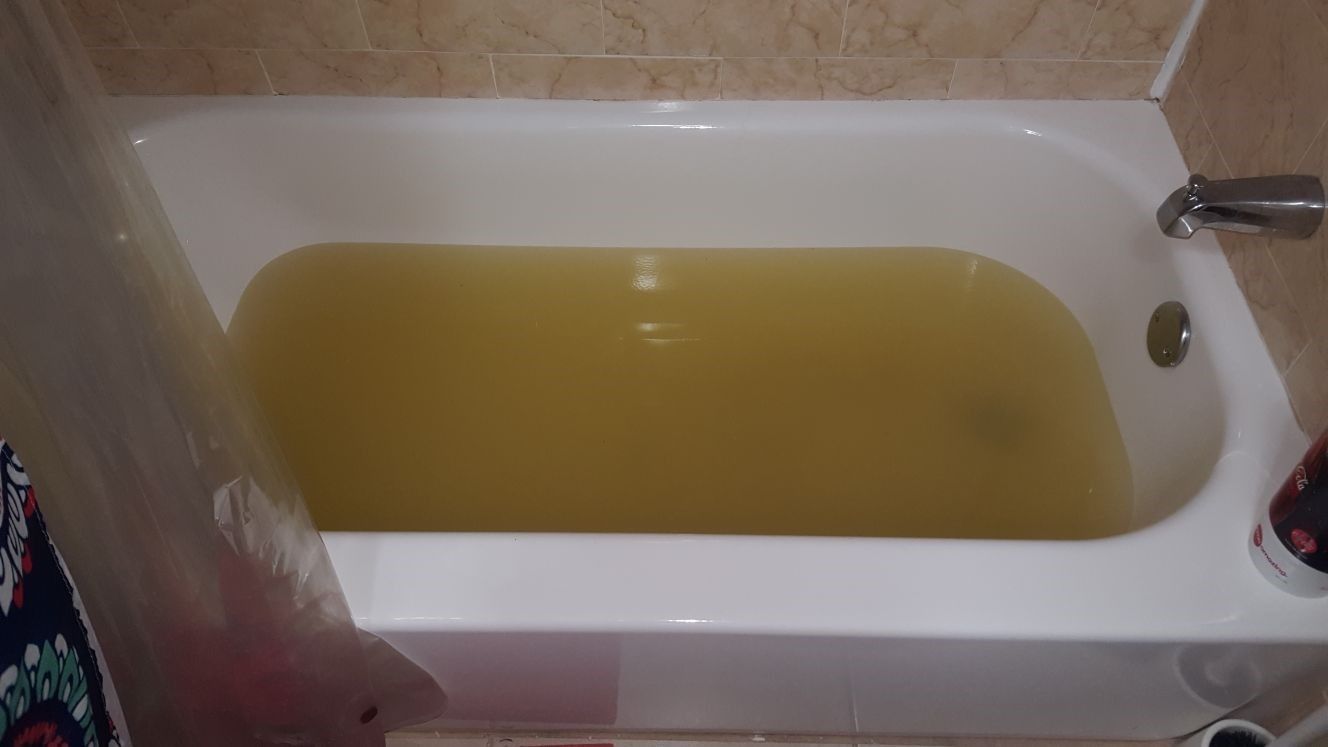

0 thoughts on “Why Does My Duvet Smell”